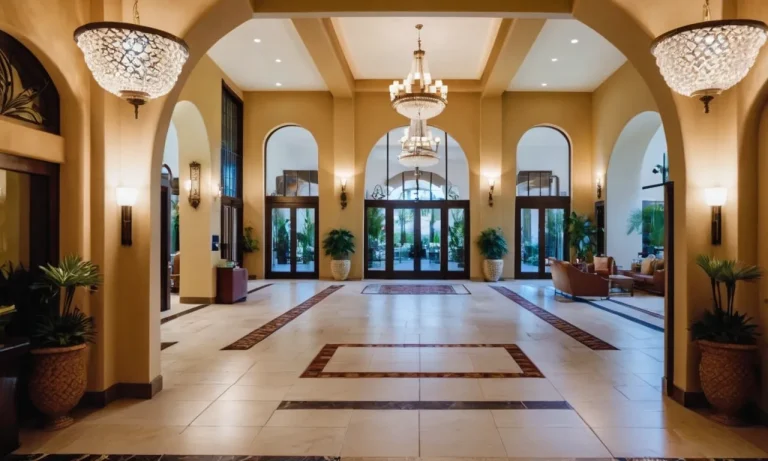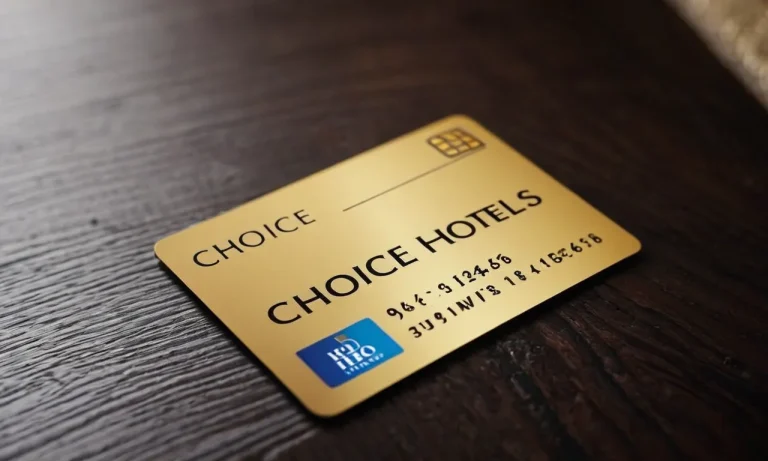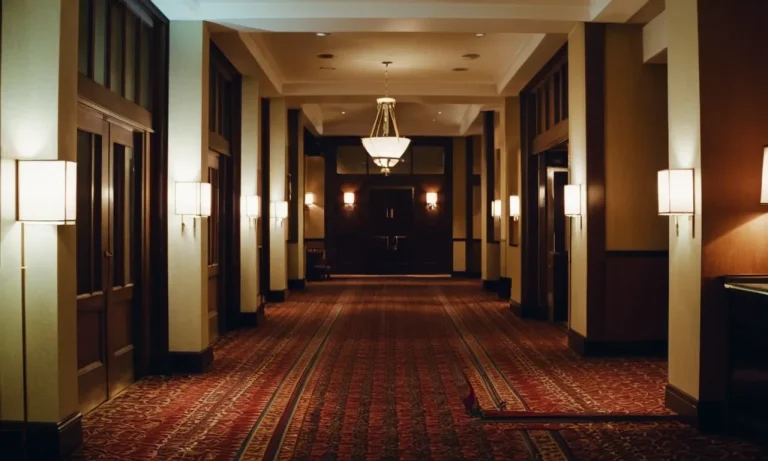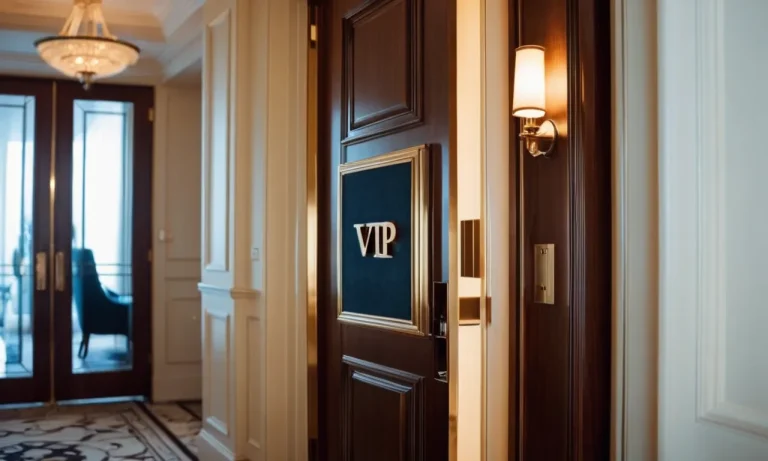The Biggest Expenses in the Hotel Business: A Comprehensive Guide
In the ever-competitive world of hospitality, managing expenses is a critical aspect of running a successful hotel business. From staffing costs to utilities and maintenance, the expenses can quickly add up, making it essential for hotel owners and managers to have a firm grasp on where their money is going.
If you’re short on time, here’s a quick answer to your question: Some of the biggest expenses in the hotel business include labor costs, utilities, property maintenance, marketing and advertising, and technology investments.
In this comprehensive article, we’ll delve into the various expense categories that can significantly impact a hotel’s bottom line. We’ll explore strategies to manage these costs effectively, ensuring profitability and long-term sustainability in the industry.
Labor Costs: The Backbone of Hospitality
In the dynamic world of hotels, labor costs are undoubtedly the backbone that keeps the industry thriving. From the warm smiles that greet guests at the front desk to the meticulous attention to detail in housekeeping, it’s the dedicated workforce that breathes life into the hospitality experience.
As such, managing labor costs effectively is paramount for hotels to strike a delicate balance between providing exceptional service and maintaining profitability.
Salaries and Wages
Salaries and wages account for a significant portion of a hotel’s labor costs. According to a study by Hotel Management, wages and salaries can consume up to 45% of a hotel’s total operating expenses. This substantial investment is a testament to the value placed on human capital within the industry.
From front-line staff to management positions, hotels must carefully navigate the competitive job market to attract and retain top talent, ensuring they offer competitive compensation packages.
To illustrate the significance of salaries and wages, consider this: A typical full-service hotel with 200 rooms and an occupancy rate of 70% can expect to spend approximately $2.5 million annually on labor costs alone.
This staggering figure highlights the importance of efficient staffing strategies and cost optimization measures.
Employee Benefits
Beyond salaries and wages, hotels must also factor in the cost of employee benefits, which can add a substantial burden to their overall labor expenses. Benefits such as health insurance, retirement plans, paid time off, and other perks play a crucial role in attracting and retaining a skilled workforce.
According to the U.S. Bureau of Labor Statistics, employee benefits can account for approximately 30% of total compensation costs in the accommodation and food services industry.
Striking the right balance between offering competitive benefits and managing costs is a delicate dance for hotel operators. Many hotels turn to innovative solutions, such as wellness programs, flexible work arrangements, and employee assistance programs, to enhance their benefits package while maintaining fiscal responsibility.
By prioritizing employee well-being and satisfaction, hotels can foster a loyal and motivated workforce, ultimately contributing to better guest experiences and long-term profitability.
Training and Development
In an industry where exceptional service is the cornerstone of success, investing in training and development is crucial. Hotels must allocate resources to ensure their staff is equipped with the necessary skills and knowledge to deliver outstanding guest experiences.
From onboarding and orientation programs to ongoing professional development opportunities, training costs can quickly add up.
However, the investment in training and development pays dividends in the form of improved employee performance, increased guest satisfaction, and reduced turnover rates. According to a report by the American Hotel & Lodging Association, hotels spend an average of $1,500 per employee annually on training and development initiatives.
This commitment to continuous learning not only enhances the guest experience but also fosters a culture of growth and advancement within the organization.
By embracing innovative training methods, such as e-learning platforms, simulations, and cross-training programs, hotels can optimize their training budgets while ensuring their workforce remains agile and adaptable to the ever-evolving demands of the industry. Investing in training and development is an investment in the future success of the hotel, as a well-trained and knowledgeable staff is the cornerstone of delivering exceptional hospitality experiences.
Utilities: Keeping the Lights On and the Rooms Comfortable
In the hotel business, utilities play a crucial role in ensuring a comfortable and enjoyable stay for guests. From keeping the lights on to maintaining optimal room temperatures, these expenses can quickly add up and significantly impact a hotel’s bottom line.
Let’s delve into the world of utilities and explore their significance in the hospitality industry.
Electricity and Gas
Electricity and gas are the lifeblood of any hotel, powering everything from lighting and appliances to heating and cooling systems. According to EnergyStar, energy costs can account for up to 60% of a hotel’s utility expenses.
Implementing energy-efficient practices, such as LED lighting, smart thermostats, and energy-efficient appliances, can significantly reduce these costs while contributing to a more sustainable operation.
Water and Sewage
Water is an indispensable resource in the hotel industry, used for guest rooms, laundry facilities, swimming pools, and landscaping. Sewage disposal is equally important, ensuring proper waste management and compliance with local regulations.
According to EPA WaterSense, hotels can save billions of gallons of water and millions of dollars annually by implementing water-efficient practices like low-flow showerheads, faucet aerators, and water-efficient landscaping.
Heating and Air Conditioning
Maintaining a comfortable indoor environment is crucial for guest satisfaction, and heating and air conditioning systems play a pivotal role in achieving this. However, these systems can be energy-intensive and contribute significantly to a hotel’s utility costs.
According to Hotel News Resource, heating and cooling can account for up to 40% of a hotel’s energy consumption. Investing in energy-efficient HVAC systems, proper insulation, and smart temperature controls can help mitigate these costs while ensuring guest comfort.
To illustrate the impact of utilities on a hotel’s expenses, let’s consider the following statistics:
- A typical 150-room hotel can spend approximately $200,000 annually on electricity alone (Source: EnergyStar).
- Water and sewage costs can account for 15-25% of a hotel’s utility expenses (Source: EPA WaterSense).
- Implementing energy-efficient practices can reduce a hotel’s energy costs by 20-30% (Source: Hotel News Resource).
In the ever-competitive hotel industry, managing utilities efficiently can be a game-changer. By implementing sustainable practices, investing in energy-efficient technologies, and fostering a culture of conservation, hotels can not only reduce their utility expenses but also contribute to a greener planet 🌍 and enhance their brand reputation.
After all, who doesn’t love a hotel that’s both comfortable and environmentally conscious? 😊
Property Maintenance: Preserving the Guest Experience
In the hotel industry, maintaining the property is a critical aspect that directly impacts the guest experience. A well-maintained property not only enhances the overall ambiance but also ensures the safety and comfort of guests.
From the moment visitors step onto the premises, they expect a pristine environment that reflects the hotel’s commitment to excellence.
Building Repairs and Renovations
Regular building repairs and renovations are essential to keep the hotel in top condition. According to a study by CBRE Hotels, hotels that consistently invest in renovations tend to have higher occupancy rates and can command higher room rates.
Neglecting maintenance can lead to a decline in property value and guest satisfaction. Renovations may include updating guest rooms, refreshing public spaces, or modernizing amenities to meet the evolving needs and expectations of travelers.
Landscaping and Grounds Upkeep
The exterior appearance of a hotel plays a crucial role in creating a lasting first impression. Well-manicured landscaping and meticulously maintained grounds contribute to the overall aesthetic appeal and create a welcoming atmosphere.
According to a survey by Landscape Management, 👌 76% of hotel guests consider the landscaping when choosing a property. Regular lawn care, pruning, and seasonal plantings not only enhance the visual appeal but also promote a sense of tranquility and relaxation for guests.
Housekeeping and Cleaning Supplies
Cleanliness is paramount in the hotel industry, and housekeeping plays a vital role in maintaining high standards. A spotless and well-stocked room can make or break a guest’s experience. According to Statista, the average hotel spends approximately $1,500 per room annually on housekeeping expenses, including cleaning supplies.
😊 Investing in high-quality cleaning products and equipment ensures that every corner of the property is thoroughly cleaned and sanitized, creating a fresh and inviting environment for guests.
Maintaining a hotel property is an ongoing process that requires dedication, attention to detail, and a commitment to excellence. By prioritizing building repairs and renovations, landscaping and grounds upkeep, and housekeeping and cleaning supplies, hotels can create an exceptional guest experience that keeps visitors coming back time and time again.
🎉 After all, a well-maintained property is the foundation upon which a hotel’s reputation is built.
| Expense Category | Average Annual Cost per Room |
|---|---|
| Building Repairs and Renovations | $2,500 – $5,000 |
| Landscaping and Grounds Upkeep | $1,000 – $2,500 |
| Housekeeping and Cleaning Supplies | $1,500 |
Marketing and Advertising: Attracting Guests and Building Brand Awareness
In the highly competitive hotel industry, effective marketing and advertising strategies are crucial for attracting guests and building a strong brand presence. With so many options available to travelers, hotels must invest significant resources to stand out and capture the attention of potential customers.
From leveraging the power of digital marketing to tapping into traditional advertising channels and implementing enticing loyalty programs, a comprehensive approach is essential for success.
Online Marketing and SEO
In today’s digital age, a robust online presence is paramount for hotels. According to a study by TravelClick, over 60% of hotel bookings originate from online sources, making digital marketing a top priority.
Search Engine Optimization (SEO) is a vital component, ensuring that a hotel’s website ranks highly in search engine results for relevant keywords. This involves optimizing website content, structure, and metadata to improve visibility and attract organic traffic.
Social media platforms, such as Facebook, Instagram, and Twitter, offer powerful tools for hotels to engage with potential guests, showcase their properties, and run targeted advertising campaigns. According to Statista, over 90% of hotels in the United States utilize social media for marketing purposes.
Additionally, online review platforms like TripAdvisor and Yelp play a crucial role in influencing consumer decisions, with 88% of travelers relying on online reviews when booking accommodations, as reported by TrustYou.
Traditional Advertising Channels
While digital marketing is essential, traditional advertising channels should not be overlooked. Print advertisements in travel magazines, billboards, and television commercials can still effectively reach specific target audiences.
For example, HospitalityNet reports that luxury hotels often invest in print advertising to maintain a prestigious brand image and appeal to high-end travelers.
Partnerships and collaborations with travel agencies, airlines, and other related businesses can also be a valuable marketing strategy. By cross-promoting and offering package deals, hotels can tap into new customer bases and increase exposure.
According to a study by Phocuswright, airline-hotel partnerships have seen a significant increase in recent years, with over 60% of travelers expressing interest in such offers.
Loyalty Programs and Promotions
Loyalty programs and targeted promotions are powerful tools for retaining existing customers and incentivizing repeat business. By offering rewards, discounts, and exclusive perks to loyal guests, hotels can foster a sense of brand loyalty and encourage future bookings.
According to Marketing Charts, over 75% of travelers are more likely to book with a hotel brand that offers a loyalty program.
Special promotions and package deals can also be effective in attracting new guests and driving bookings during slower periods. For instance, offering discounted rates for early bookings, bundling hotel stays with local attractions or dining experiences, or providing value-added amenities like complimentary spa treatments or dining credits can entice travelers to choose a particular hotel over competitors.
Technology Investments: Staying Ahead of the Curve
In the ever-evolving hospitality landscape, embracing cutting-edge technology is no longer an option but a necessity. Hotels that fail to keep pace with the latest innovations risk falling behind their competitors and jeopardizing guest satisfaction.
To stay ahead of the curve, savvy hoteliers must be prepared to allocate a significant portion of their budget towards technology investments. These investments encompass a wide range of areas, from property management systems to guest room technology and cybersecurity measures.
Property Management Systems
At the heart of every successful hotel operation lies a robust property management system (PMS). This software acts as the central command center, streamlining everything from room reservations and guest check-in/check-out processes to housekeeping management and reporting.
Investing in a cutting-edge PMS, such as those offered by industry leaders like Provenio or InnRoad, can significantly enhance operational efficiency and guest experience. These systems often integrate with other hotel technologies, creating a seamless ecosystem that maximizes productivity and profitability.
Guest Room Technology
Gone are the days when a television and a telephone were the only technological amenities guests expected in their hotel rooms. Today’s tech-savvy travelers demand a plethora of smart features and personalized experiences.
From high-speed Wi-Fi and smart TVs to voice-controlled assistants and mobile device integration, the list of must-have in-room technologies continues to grow. According to a survey by Hotel News Resource, 😊 over 70% of guests consider in-room technology a crucial factor when choosing a hotel.
By investing in cutting-edge guest room technology, hotels can enhance the overall guest experience, drive satisfaction, and ultimately boost revenue.
Cybersecurity and Data Protection
As hotels increasingly rely on digital systems and collect vast amounts of guest data, cybersecurity and data protection have become paramount concerns. A single breach can result in catastrophic consequences, including financial losses, reputational damage, and legal liabilities.
To safeguard against these risks, hotels must allocate a substantial portion of their technology budget towards robust cybersecurity measures. This includes investing in advanced firewalls, encryption technologies, and regular security audits conducted by reputable firms like Trustwave or Rapid7.
Additionally, staff training on data privacy best practices and compliance with regulations like the General Data Protection Regulation (GDPR) is essential.
While the upfront costs of these technology investments may seem daunting, the long-term benefits far outweigh the expenses. By embracing innovation, hotels can not only enhance operational efficiency and guest satisfaction but also future-proof their businesses in an increasingly competitive market.
Isn’t it awesome 👏 how technology continues to revolutionize the hospitality industry?
Conclusion
Managing expenses in the hotel business is a delicate balancing act, requiring careful planning, strategic decision-making, and a commitment to operational efficiency. By understanding the major expense categories and implementing cost-effective strategies, hotel owners and managers can ensure long-term profitability and success in this dynamic industry.
From optimizing labor costs and utilities to investing in property maintenance, marketing, and technology, each expense category plays a crucial role in delivering an exceptional guest experience while maintaining a competitive edge.
By prioritizing these expenses and continuously seeking opportunities for cost savings, hotels can navigate the challenges of the industry and thrive in an ever-evolving market.
Ultimately, effective expense management is not just about cutting costs; it’s about making strategic investments that enhance the guest experience, build brand loyalty, and drive sustainable growth. By embracing a holistic approach to expense management, hotels can position themselves for long-term success in the competitive hospitality landscape.






